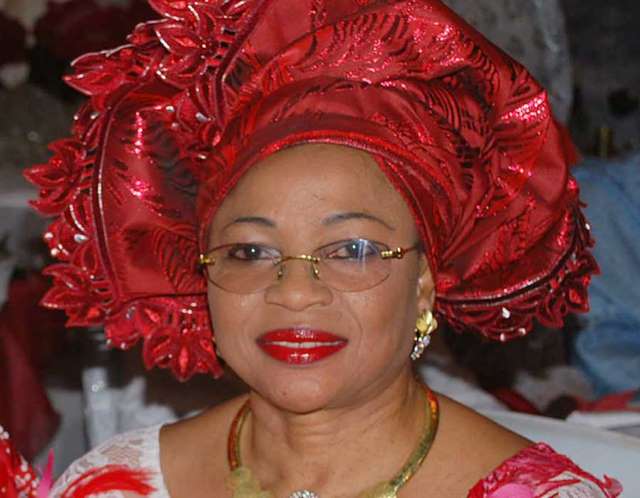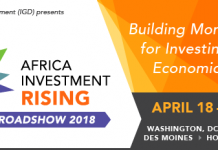As the African Grantmakers Affinity Group (AGAG)’s annual conference gets under way in New York City this week, AfricaStrictlyBusiness.com takes a look at how Africa’s wealthiest entrepreneurs are quietly building human capacity on the continent through their own business and/or philanthropy models.
“Philanthropy and Development: Where Are Africa’s Billionaires?” was the key topic of discussion at a high-level luncheon during the annual meetings of the African Development Bank Group in 2013 in Morocco. The question was hardly surprising, when the names of Bill and Melinda Gates, Bill Clinton, George Soros, Tony Blair, and Bono appear so frequently in, and are so closely tied to, Africa’s development space, while names such as Aliko Dangote, Tony Elumelu, Patrice Motsepe, Folorunsho Alakija and Mike Adenuga, receive far less attention in that space.
According to Forbes magazine, as of March 2014 there were 29 billionaires in Africa. That’s a conservative number by African accounts. Even Forbes concedes that it is “probably missing a number of African billionaires.” Ventures Africa, the pan-African business magazine, puts the number of African billionaires at 55. Even that may be a conservative number.
Skepticism about the tally stems from a culture that finds it unseemly to discuss personal wealth. “Wealth is still somewhat taboo in Africa,” Chi Chi Okonjo, Ventures Africa’s publisher, told Voice of America last October. “It’s a cultural thing. People don’t like to discuss how much money they have or how much they’ve amassed.”
Similarly, philanthropy is less the high-profile gesture of giving in Africa than it is in other societies. Quietly paying the school fees of a few bright highschoolers or university students, or supporting the local soccer team, for example, has enormous impact on human capital development.
Here are some recent actions by African billionaires:
Aliko Dangote, Dangote Group. The group is partnering with the Islamic Development Bank to boost job creation in Africa. Dangote said he’s putting $1.2 billion into his foundation to work in education, health and job creation in Africa and, yes, other parts of the world. “China developed because the Chinese invested in the country. America is successful because the system is tied to job creation, so we must invest in Africa in order to create jobs,” he told bank staff during a lecture in Jeddah, where the bank is headquartered.
Tony Elumelu, Heirs Holdings. The entrepreneurship-focused foundation that bears his recently provided grant support for the Nigeria Innovations Cluster Mapping project, aimed at uncovering innovation clusters — groups of companies in similar industries employing new technologies in their business — across Nigeria. The research will furnish the Tony Elumelu Foundation, the Nigerian government and the business community with data and tools for understanding what drives innovation clusters and development in every region of the country, and how policies can help these business clusters strengthen their ability to formalize and scale up.
“We will be better able to know why a cluster of leather accessories artisans exist in Aba or what could enable a network of Solar Power entrepreneurs in Sokoto,” said Ndubuisi Ekekwe, founder of the African Institution of Technology’s (AFRIT) Education Foundation, which is executing the mapping project. With Elumelu’s grant, “we have the resources to execute nationwide research that will help understand why these clusters exist, their needs, and the possibilities for replication in other parts of the country where similar conditions are available,” he said.
Mike Adenuga Jr., The Mike Adenuga Group. The Confederation of African Football bestowed on Adenuga the title of “Pillar of Football in Africa,” for his strong support of African football nationally and continent wide. Globacom Ltd., which The Mike Adenuga Group owns, in February, sponsored the Lisabi Festival to keep the legacies of the Egba hero alive and impart young ones with the values which Lisabi Agbongboakala stood for. It was the platinum sponsor of the weeklong 15th Nigeria Oil and Gas Industry Games in February.
Patrice Motsepe, African Rainbow Minerals. Motsepe, owner of the football club Mamelodi Sundowns, joined The Giving Pledge in 2013, committing to give half his wealth to charitable causes. The Motsepe Family Foundation is putting at least $30 million through 2014 into youth education and youth business development. “It is important that each of us, particularly those in my position, must help our youth with education, invest in youth businesses and help wherever we can,” Motsepe is quoted as saying. The family foundation will use the money to support South Africans students attending tertiary institutions, provide grants to businesses founded by young South Africans, and to support religious institutions and sports.
Folorunsho Alakija (pictured above), The Rose of Sharon Group. Folorunsho Alikaja and her entire family in February dedicated a school block to Lagos state, in honor of their late mother. They commissioned an ultra-modern block of 18 classrooms at the Alice Ogbara Memorial Junior Secondary School in Oniba, Ojo. Alakija said this move was in line with her family’s vision of empowerment, and noted that if children were uneducated, there would be no solid ground for development.
Alakija’s Rose of Sharon Foundation’s Microcredit Scheme provides interest-free loans to widows to boost their economic activities. The foundation’s Skills Acquisition & Vocational Scheme provides sustainable income-generation skills and vocations to widows and vulnerable women who are breadwinners; its Small and Medium Enterprise program offers training and follow-up to up-and-coming widow’s entrepreneurs; and its Agric-Business Scheme provides access to finance, knowledge, and essential training to rural widows and vulnerable women in agriculture.
Abdulsamad Rabiu, BUA Group. In the belief that the group’s “underlying success cannot be complete without us acknowledging the host communities in which we operate,” a team of BUA professionals routinely scans the environment to identify the needs of the communities, and implements and drives initiatives to meet those needs. BUA Group sponsored the Talent Hunt Under 13-14 Football Academy Competition and maintains an on-going partnership with the Academy in their activities, with a view toward preventing youths from perpetuating social delinquencies by engaging them in sports and building their talents.
Sheikh Mohammed Al-Amoudi, MIDROC Ethiopia Investment Group. In keeping with Al-Amoudi’s fervent belief in the continuous development of human resources and capacity building to compete in the global marketplace, companies within the MIDROC Ethiopia group regularly conduct short- and medium-term management training programs, workshops and seminars to supplement the requirement of trained personnel in various capacities within the group. In 2008, MIDROC Ethiopia Technology Group Companies acquired Unity University in Addis Ababa “to provide educational opportunity to the youth of Ethiopia, who can use it, in turn, to further develop Ethiopia.”
Beginning with this column, AfricaStrictlyBusiness.com periodically will present “Billionaires Building Capacity,” putting the spotlight on skyrocketing African investment in Africa in a way similar to what we do on African innovation in Africa through our “FABA (For Africa By Africans)” column.













